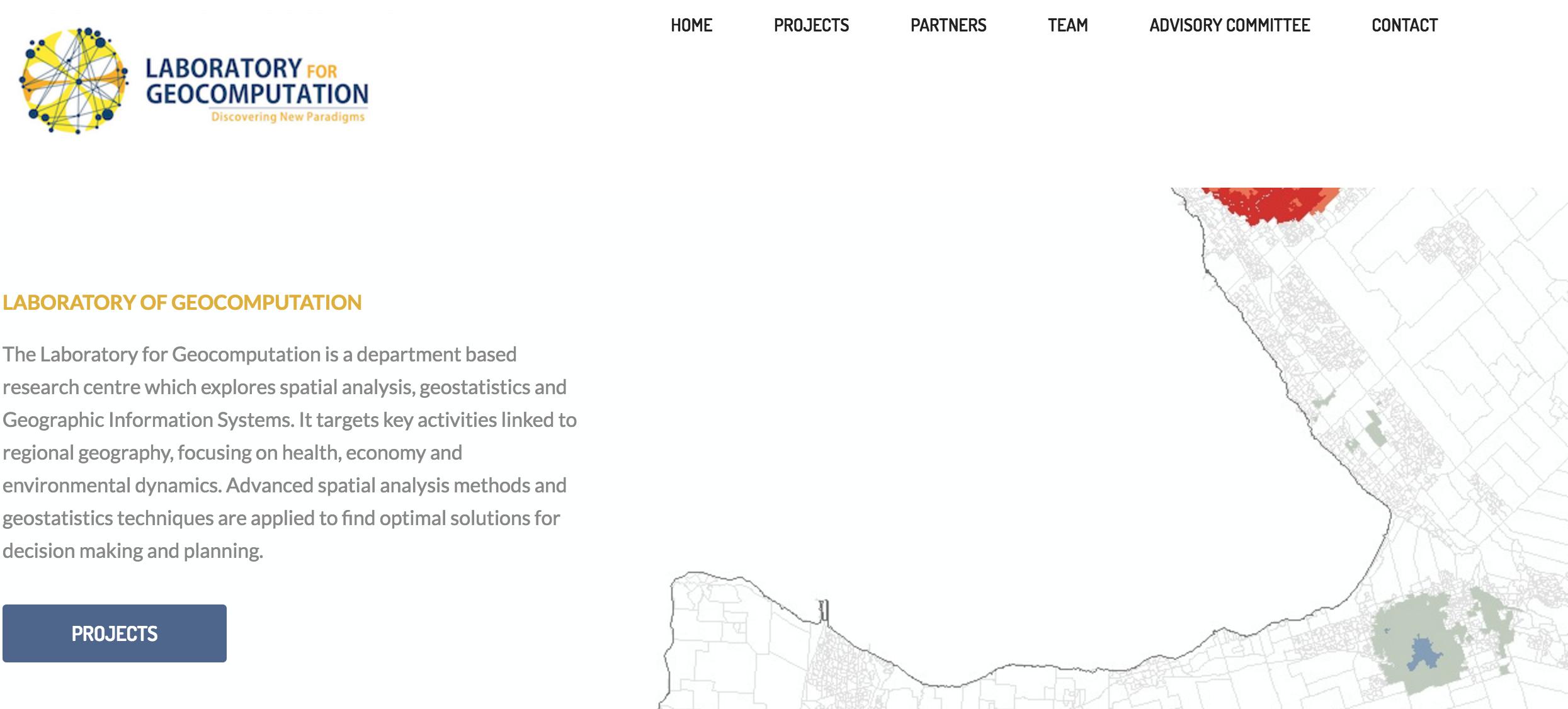Research and vision
I’m particularly interested in contributing to the spatial interactions of urban areas and regions. Focusing on spatially-explicit methods, much of my research projects deal with understanding shortcomings at environmental and land use level by means of advanced spatial modelling techniques, geovisualization and Geographic Information Systems. These connections make me interested in vesting my time in developing tools and techniques to assess and contribute to the field of Geosciences by means of spatial analysis and geocomputation. I direct the Laboratory for Geocomputation, which I have founded in 2014 and aims to become a beacon for spatial analysis and geocomputational methods at Ryerson University.
I am vice-president of a major European research centre, the centre for Spatial and Organizational Dynamics (CIEO), located in Portugal, classified by the Portuguese Foundation for Science and Technology as “Very Good”. The mandate of this research centre, counting with over 200 researchers and affiliated members, is to promote research in view of the creation of a scientific multidisciplinary knowledge in the areas of cities and spatial dynamics, organizations, innovation and learning spaces, tourism and wellbeing in society, as well as broadcast at international level scientific knowledge for strategic management, human knowledge and entrepreneurship. The research centre focuses on the Mediterranean, fostering the development and incorporation of knowledge and regional development in the south.
In 2016, I have assumed the position of Associate Editor for Elsevier’s Habitat International (Impact Factor 2015: 2.029). The journal focuses on issues related to the study of urban and rural human settlements: their planning, design, production and management. Its main focus is on the urbanisation in its broadest sense in the developing world. However, increasingly the interrelationships and linkages between cities and towns in the developing and developed worlds are becoming apparent and solutions to the problems that result are urgently required. The economic, social, technological and political systems of the world are intertwined and changes in one region almost always affect other regions. As Associate Editor my mission is to criteriously select the top papers that can have an outstanding contribution to the field. The diversity of our readership combined with the current issues at hand dealing with the dynamics of human settlements, fits well into my continuous effort to apply spatially-explicit methods.
My research is as such predominantly multidisciplinary, nested in the plethora of spatial modeling and spatial analytical tools and comfortably held within Geographic Information Science. Approaching the field of regional sciences, I’m particularly intrigued in focusing on research outcomes that have applied results and answer current concerns. As a social scientist I nurture the consolidation of research outputs with results for society, policy, and development. It is in this sense that my research vision attempts to bring a consolidating concept between organization, communities and academia. I believe that spatial analysis holds very novel and robust methods that can be explored with the advent of geocomputation which I enthusiastically explore in my projects, publications, and education.
